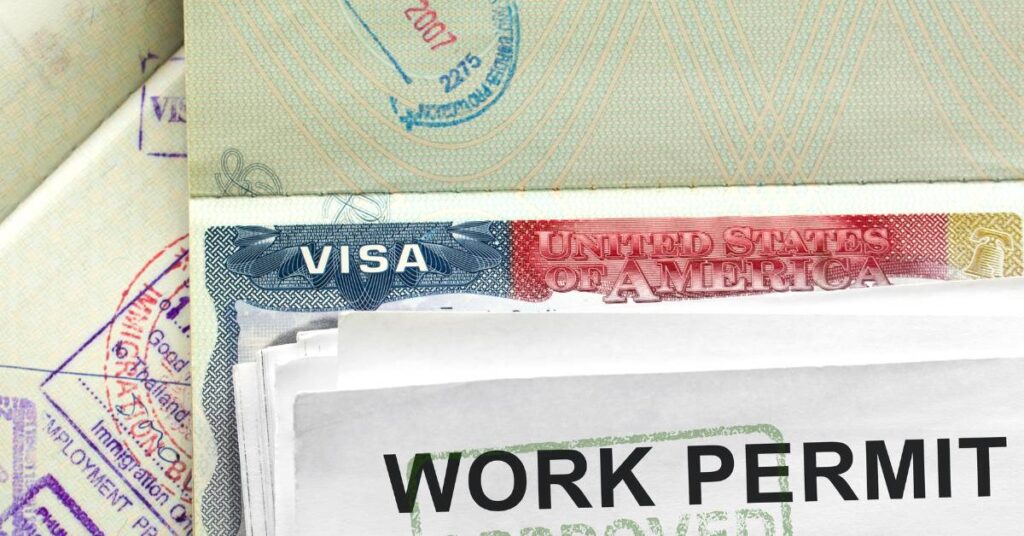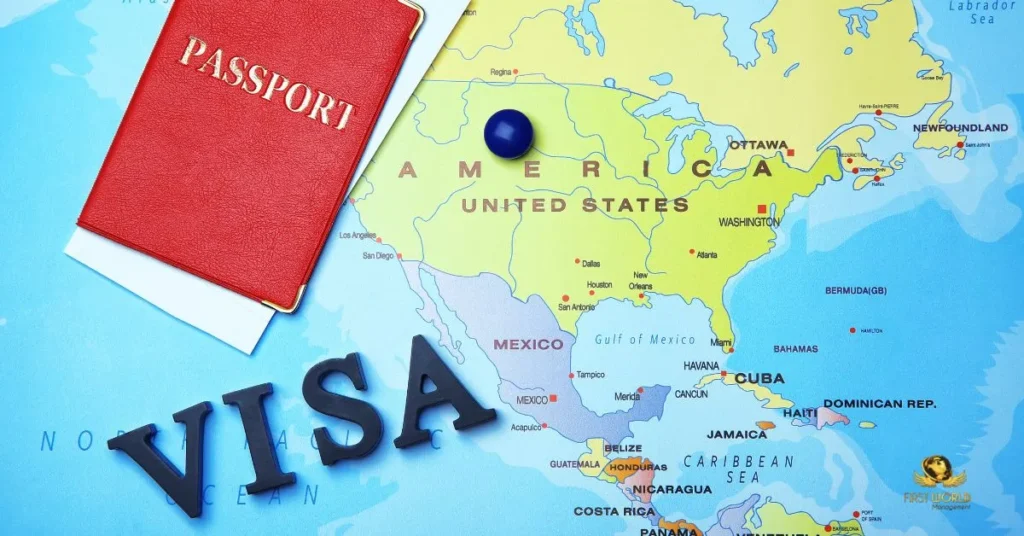The S Pass is a type of work pass issued by the Ministry of Manpower (MOM) in Singapore. It is designed to allow mid-skilled foreign professionals to work in Singapore for a specific employer. The S Pass is one of the various work passes available in Singapore, each catering to different levels of employment and qualifications.
Table of Contents
Definition:
The S Pass is targeted at foreign workers who possess a certain level of educational qualifications and work experience, typically falling between the Employment Pass (EP) and Work Permit (WP) categories. It is a crucial part of Singapore’s workforce policy, as it helps businesses address their manpower needs while ensuring a balance between hiring foreign talent and protecting job opportunities for locals.
Purpose:
The main purpose of the S Pass is to address the demand for mid-skilled labor in sectors where there is a shortage of suitable local candidates. By allowing employers to hire foreign workers for positions that require specific skills and qualifications, the S Pass contributes to the growth and development of various industries in Singapore.
The S Pass is subject to certain eligibility criteria, including qualifications, experience, and salary levels, which help ensure that only deserving candidates receive the work pass. Moreover, the pass also imposes a quota system to maintain a healthy ratio between local and foreign workers in the country.
In summary, the S Pass plays a vital role in enabling companies to access skilled foreign talent, facilitating economic growth, and supporting the country’s labor market needs. It strikes a balance between promoting a competitive business environment and safeguarding employment opportunities for Singaporean citizens.
Eligibility Criteria for S Pass in Singapore
To be eligible for an S Pass in Singapore, foreign applicants must meet specific qualifications, experience requirements, and salary thresholds. The MOM sets these criteria to ensure that only deserving candidates with the necessary skills and expertise receive the S Pass.
A. Qualifications and Experience Requirements:
- Educational Qualifications: S Pass applicants must possess at least a diploma or equivalent qualification. The diploma should be from a reputable institution and relevant to the job they are applying for.
- Work Experience: In addition to educational qualifications, applicants must have relevant work experience. The exact number of years of experience required may vary based on the specific job position and industry.
B. Minimum Salary Threshold:
- The S Pass salary requirement is regularly updated by the MOM, and it is subject to change based on economic conditions and labor market demands.
- Employers are required to offer a minimum monthly salary to S Pass holders that meets or exceeds the current salary threshold set by the MOM.
C. Quota System:
- The Singaporean government has set a quota on the number of S Pass holders a company can employ. This quota is calculated based on the company’s workforce size and the proportion of local employees.
- The S Pass quota aims to regulate the hiring of foreign workers to strike a balance between local and foreign talent in the workforce.
D. Assessment:
- The MOM assesses each S Pass application individually, taking into account the applicant’s qualifications, work experience, and the company’s profile.
- Employers are expected to provide accurate and complete information about the job vacancy and the applicant’s qualifications during the application process.
E. Other Considerations:
- Age: While there is no specific age requirement, the applicant’s age may be considered as a factor during the assessment process.
- Sector-specific Requirements: Certain industries may have additional requirements or specific criteria for S Pass applicants, depending on the nature of the work.
It is crucial for both employers and foreign applicants to ensure that they meet all the eligibility criteria before applying for the S Pass. Failure to meet any of these requirements may lead to the rejection of the application. To stay updated on the latest eligibility criteria and requirements, applicants should refer to the official MOM website or seek professional advice.

Application Process for S Pass in Singapore
The application process for the S Pass in Singapore involves several steps, and it is essential for both employers and foreign applicants to follow the guidelines provided by the Ministry of Manpower (MOM). Below is an overview of the typical application process:
A. Employer’s Responsibilities:
- Check Eligibility: Before applying for the S Pass, employers must ensure that the foreign candidate meets the eligibility criteria, including educational qualifications, work experience, and the minimum salary threshold.
- Register and Log In: Employers need to be registered on the MOM’s online portal called “EP Online” to submit an S Pass application. They can log in using their SingPass (Singapore Personal Access) or CorpPass (for corporate entities).
- Declare Information: Employers are required to provide accurate and detailed information about the company, the job position, and the foreign candidate during the application process.
- Quota Availability: Employers should check whether their company has available S Pass quota slots to hire foreign employees. The MOM sets a specific quota for each company based on its workforce size and the proportion of local employees.
B. Required Documents:
- Form 8: Employers need to complete and submit Form 8, which is the official application form for the S Pass. This form can be downloaded from the MOM website or accessed through the EP Online portal.
- Candidate’s Documents: Employers should collect and submit all relevant documents from the foreign candidate, including a copy of their passport, educational certificates, and work-related credentials.
C. Online Application:
- Access EP Online: Employers or their authorized representatives can log in to the EP Online portal using their SingPass or CorpPass.
- Fill in Details: Complete the online application form (Form 8) with accurate and up-to-date information about the company and the foreign candidate.
- Upload Documents: Upload all necessary supporting documents, such as the candidate’s passport and educational certificates, to the online system.
- Pay Application Fee: Employers are required to pay a processing fee for each S Pass application submitted. The fee can be paid online through various payment modes available on the MOM website.
D. Processing Time and Outcome:
- Processing Time: The MOM usually processes S Pass applications within a few weeks. The processing time may vary depending on the volume of applications and the complexity of the case.
- Outcome Notification: Once the application is processed, the employer will receive an email notification regarding the outcome of the application. This notification will indicate whether the S Pass is approved, or rejected, or if further documents or clarifications are required.
E. Collection of S Pass:
If the S Pass application is approved, the foreign candidate will receive an In-Principle Approval (IPA) letter. This letter allows the candidate to travel to Singapore, and upon arrival, the candidate and the employer must complete additional formalities to have the actual S Pass issued.
It is essential to follow the application process diligently, as any discrepancies or inaccuracies may result in delays or rejection. For further details and updates, applicants should refer to the official MOM website or seek guidance from authorized agencies specializing in work pass applications.
Duration and Renewal of S Pass in Singapore
The S Pass in Singapore has a specific duration of validity, and its renewal process is subject to certain conditions. Here’s an overview of the duration of the S Pass and the steps involved in renewing it:

A. Duration of S Pass:
- Initial Duration: The initial validity period of an S Pass is typically up to 2 years. The exact duration may vary based on the specific circumstances of the applicant, including the applicant’s qualifications, experience, and the employer’s profile.
- Sector-Specific Considerations: In some industries or sectors, the duration of the S Pass may be subject to additional regulations or restrictions, based on government policies and labor market conditions.
B. Renewal Process:
- Eligibility for Renewal: Employers can apply to renew the S Pass before its expiration, provided the foreign worker continues to meet the eligibility criteria, including educational qualifications, work experience, and a salary threshold.
- Application Submission: Employers must submit the S Pass renewal application through the MOM’s online portal, either using their SingPass or CorpPass.
- Early Submission: The renewal application can be submitted as early as 6 months before the current S Pass’s expiry date. It is advisable to apply well in advance to avoid any disruptions in the employment of the foreign worker.
- Up-to-Date Information: Employers should ensure that all information provided in the renewal application is accurate and up-to-date. Any changes in the candidate’s salary or job responsibilities should be accurately reflected in the application.
- Additional Documentation: In some cases, the MOM may request additional documents or information to verify the continued eligibility of the foreign worker for the S Pass.
C. Outcome of Renewal Application:
- Processing Time: The MOM typically processes S Pass renewal applications within a few weeks. The processing time may vary depending on the volume of applications and the complexity of the case.
- Approval or Rejection: The employer will receive an email notification regarding the outcome of the renewal application. If approved, the candidate will receive an In-Principle Approval (IPA) letter, which will allow them to continue working in Singapore.
D. Multiple Renewals:
- Limitations: While there is no specified maximum number of renewals for the S Pass, the MOM may impose certain limitations based on specific circumstances, such as the length of stay in Singapore and the candidate’s contributions to the local workforce.
- Transition to Other Work Passes: In some cases, if the foreign worker has been on the S Pass for an extended period and meets certain criteria, they may be eligible to apply for other work passes, such as the Employment Pass (EP), which caters to higher-skilled professionals.
It is essential for employers and foreign workers to be aware of the S Pass’s validity period and initiate the renewal process in a timely manner. Keeping all documentation up-to-date and complying with the MOM’s regulations will help ensure a smooth renewal process. For the most current information and updates, employers and foreign workers should refer to the official MOM website or seek advice from authorized immigration consultants.
S Pass Quota and Levy in Singapore
A. S Pass Quota:
- Introduction: The Singaporean government implements a quota system to regulate the hiring of foreign workers on S Passes. The quota aims to strike a balance between employing foreign talent to meet workforce demands and ensuring sufficient job opportunities for local citizens.
- Quota Calculation: The S Pass quota for a company is determined based on its workforce size and the proportion of local employees (Singaporeans and Permanent Residents) in the workforce. The quota is expressed as a percentage of the total workforce.
- S Pass Sub-Dependency Ratio (SDR): The S Pass sub-dependency ratio is the maximum allowed percentage of S Pass holders in a company’s total workforce. This means that only a certain proportion of a company’s workforce can be comprised of S Pass holders.
- Flexibility in S Pass Quota: Companies with a higher percentage of local employees have a higher S Pass quota, allowing them to hire a larger number of S Pass holders. Conversely, companies with a lower proportion of local employees may have a lower S Pass quota.
- Checking Quota Availability: Employers can check the available S Pass quota for their company through the Ministry of Manpower’s (MOM) online portal or by contacting the MOM directly.
B. Levy for S Pass Holders:
- Levy Introduction: Employers hiring S Pass holders are required to pay a monthly foreign worker levy to the Singaporean government. The levy is intended to manage the demand for foreign workers and encourage employers to prioritize local hiring.
- Levy Rates: The levy rates for S Pass holders vary depending on the sector and the number of S Pass holders employed by the company. Typically, companies with a higher proportion of S Pass holders will incur a higher levy rate.
- Skill Level-Based Levy: The MOM categorizes S Pass holders into two levy tiers based on their skill level and qualifications. The levy rates are higher for S Pass holders in Tier 2, which includes those with lower qualifications and experience.
- Quota and Levy Interplay: The S Pass quota and levy are interrelated. Employers must ensure they have sufficient S Pass quota available before hiring new S Pass holders. Additionally, the levy payable will be influenced by the number of S Pass holders in the workforce.
- Waivers and Exemptions: Some employers may be eligible for levy waivers or exemptions, particularly for certain industries or specific worker categories. These waivers are intended to support economic sectors facing labor shortages or other challenges.
It is crucial for employers to adhere to the S Pass quota regulations and pay the appropriate levy promptly. Failure to comply with the quota or levy requirements may lead to penalties or the inability to hire additional S Pass holders. Employers should refer to the official MOM website for the most up-to-date information on S Pass quota and levy rates, as they may be subject to change based on government policies and economic conditions.
Key Differences Between S Pass and Other Work Passes in Singapore
Singapore offers various types of work passes to accommodate the diverse needs of employers and foreign workers. Understanding the key differences between the S Pass and other work passes is essential for employers and foreign candidates to determine the most appropriate work pass for their specific situation. Here are the main distinctions:
A. S Pass:
- Eligibility: The S Pass is designed for mid-skilled foreign professionals who possess a diploma or equivalent qualification and relevant work experience. It targets a specific segment of foreign workers who do not qualify for the higher-skilled Employment Pass (EP) but have qualifications higher than those eligible for the Work Permit (WP).
- Quota and Levy: Employers hiring S Pass holders are subject to a quota system, and the number of S Pass holders they can employ is tied to their workforce size and the proportion of local employees. Additionally, employers must pay a monthly foreign worker levy for each S Pass holder they employ.
- Skill Level: The S Pass caters to mid-level skilled workers who typically fill positions requiring specific expertise but may not meet the higher academic or professional qualifications demanded by the EP.
B. Employment Pass (EP):
- Eligibility: The Employment Pass is for foreign professionals, executives, and skilled workers who hold recognized degrees, professional qualifications, or possess specialized skills and expertise. The EP is the most common work pass for foreign professionals and executives in managerial or specialized roles.
- Quota and Levy: Unlike the S Pass, the Employment Pass does not have a quota system, and there is no foreign worker levy payable to EP holders.
- Skill Level: The EP is targeted at higher-skilled individuals who often hold university degrees, possess extensive work experience, or have demonstrated exceptional skills in their field.
C. Work Permit (WP):
- Eligibility: The Work Permit is for lower-skilled foreign workers in sectors such as construction, manufacturing, and domestic work. The requirements for the WP are generally less stringent compared to the S Pass and EP.
- Quota and Levy: The Work Permit also follows a quota system, and employers must pay a foreign worker levy for each WP holder they employ. However, the levy rates for WP holders are typically lower than those for S Pass holders.
- Skill Level: The WP is designed for entry-level workers, such as construction workers, domestic helpers, and production operators, who do not have the same level of qualifications or work experience as S Pass or EP candidates.
It’s important for employers and foreign candidates to carefully assess their qualifications and job requirements to determine the most suitable work pass. Each work pass has specific criteria, and meeting these criteria is essential for successful work pass applications. Employers should also be aware of the regulatory differences, such as quotas and levies, to ensure compliance with the Singaporean government’s labor policies.

Rights and Benefits of S Pass Holders in Singapore
S Pass holders in Singapore are entitled to various rights and benefits that are designed to protect their welfare and ensure fair working conditions. While S Pass holders are not considered as highly skilled as Employment Pass (EP) holders, they still enjoy certain privileges and protections. Here are the key rights and benefits accorded to S Pass holders:
- Legally Employed Status: S Pass holders have legal authorization to work in Singapore under the sponsorship of their employing company. They must adhere to the terms and conditions of their S Pass and the employment contract.
- Fixed-Term Employment: S Pass holders are typically hired on a fixed-term contract basis. The duration of their employment is usually linked to the validity of their S Pass, which is generally up to 2 years.
- Competitive Salary: Employers are required to pay S Pass holders a salary that meets the MOM’s specified minimum salary threshold. The salary should be commensurate with the candidate’s qualifications and experience.
- CPF Contributions: S Pass holders are eligible to receive contributions to their Central Provident Fund (CPF) accounts, which serve as a social security savings scheme. Both the employer and the employee make CPF contributions.
- Skills Development Levy (SDL): Employers of S Pass holders are required to contribute to the Skills Development Levy, which funds workforce training and upgrading programs in Singapore.
- Medical Benefits: S Pass holders are entitled to basic medical benefits as part of their employment package. Employers are expected to provide adequate medical coverage or reimburse medical expenses, as per the employment contract.
- Employment Rights: S Pass holders are protected by the employment laws of Singapore, ensuring fair treatment and safeguarding against discrimination or unfair dismissal.
- Access to Grievance Mechanisms: If S Pass holders face any employment-related issues or disputes, they can seek assistance from the Ministry of Manpower (MOM) and access the Employment Claims Tribunal to resolve conflicts.
- Safe Working Conditions: Employers are obligated to provide a safe and conducive work environment, complying with relevant health and safety regulations.
- Work-Life Balance: While the specific working hours may vary based on the nature of the job, employers are expected to adhere to the standard working hours and provide adequate rest days and time-off.
- Maternity and Paternity Leave: S Pass holders who meet certain eligibility criteria are entitled to maternity and paternity leave, as per Singapore’s employment laws.
- Access to Public Services: S Pass holders have access to various public services in Singapore, such as healthcare, education, and recreational facilities.
It’s important to note that while S Pass holders enjoy several rights and benefits, they are still subject to the terms and conditions of their employment contract and the requirements of the Singaporean government. Employers are responsible for ensuring that their S Pass holders receive fair treatment and adhere to the labor laws of Singapore. S Pass holders should be aware of their rights and responsibilities to make the most of their employment in Singapore.
Responsibilities of S Pass Holders in Singapore
As holders of the S Pass in Singapore, foreign workers have certain responsibilities to fulfill. These responsibilities aim to ensure compliance with Singapore’s laws and regulations and maintain a harmonious and productive working environment. Here are the key responsibilities of S Pass holders:
- Compliance with S Pass Conditions: S Pass holders must abide by the conditions and terms specified in their S Pass, including the duration of their employment, the job position, and the employer. They should not engage in any activities that violate their past conditions.
- Validity of Employment: S Pass holders must ensure that they are working for the employer mentioned in their S Pass. Any change of employer or job position requires obtaining a new S Pass, which is subject to approval by the Ministry of Manpower (MOM).
- Salary and Tax Compliance: S Pass holders should receive the salary stated in their employment contract and adhere to Singapore’s tax regulations. They are required to pay income tax as applicable and file tax returns promptly.
- Reporting Changes: S Pass holders must promptly inform the MOM of any changes in their personal details, such as residential address, contact information, or marital status. Failure to do so may result in penalties.
- Valid Passport and S Pass: S Pass holders should keep their passports and S Pass valid at all times. It is their responsibility to renew their S Pass before its expiry if they wish to continue working in Singapore.
- Adherence to Employment Laws: S Pass holders should comply with Singapore’s employment laws and regulations, ensuring that they fulfill their work responsibilities diligently and professionally.
- Work Permit Stipulations: Some S Pass holders may have specific restrictions imposed on their work permit, such as a “bond” with their employer or restrictions on certain job-related activities. These stipulations must be adhered to at all times.
- Work Safety and Health: S Pass holders are responsible for following workplace safety guidelines and promoting a safe working environment. They should promptly report any workplace hazards or accidents to their employer.
- Professional Conduct: S Pass holders should conduct themselves professionally and ethically in their workplace and interact positively with colleagues and superiors.
- Engaging in Secondary Employment: S Pass holders are not allowed to engage in secondary employment unless they receive prior approval from the MOM. Unauthorized secondary employment may lead to penalties or the cancellation of their work pass.
- Departure from Singapore: If an S Pass holder decides to leave Singapore permanently, they should ensure that they cancel their S Pass and settle any outstanding matters before departure.
- Regular Re-Employment Medical Examination (REME): Some S Pass holders may be required to undergo a medical examination as part of the renewal process. They must comply with this requirement and undergo the examination when instructed by the MOM.
By fulfilling these responsibilities, S Pass holders can maintain their status in Singapore legally and enjoy a successful and rewarding employment experience in the country. Failure to meet these responsibilities may lead to penalties, work pass cancellation, or potential future difficulties in obtaining work passes in Singapore.




Pingback: Is IELTS Required for Singapore Work Visa? - Firstworldmanagement.com